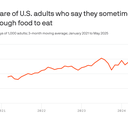Vintage photos show what summer on Martha's Vineyard used to look like

Eric Bard/Corbis/Getty Images
- Tourists have flocked to Martha's Vineyard for over 100 years for summer getaways.
- Originally settled by Native Americans, the island became a wealthy enclave by the 1830s.
- By the 1950s, Oak Bluffs on Martha's Vineyard was a popular spot for Black families.
Sandy toes, days spent lounging in the sun, and celebrity sightings: not much has changed on Martha's Vineyard since its heyday in the 1960s.
First inhabited by the Wampanoag people, Martha's Vineyard later earned a reputation as a playground for the ultrawealthy.
The New York Times reported that whaling captains began building impressive homes there between 1830 and 1845, transforming the Massachusetts island.
By the early 1900s, the island was established as a resort destination for well-off New Englanders. By the 1950s, Oak Bluffs on Martha's Vineyard had become a popular destination for Black families and residents to live and vacation.
Here's a look at what it used to be like to vacation on Martha's Vineyard.

JEWEL SAMAD/AFP/Getty Images
Martha's Vineyard is the sister island of Nantucket, Massachusetts, another playground for the rich and famous. However, "the Vineyard," as it is commonly named, is larger than Nantucket.
Located 7 miles off the coast of Cape Cod, Martha's Vineyard is the largest island on Massachusetts' southeastern coast, with a square-mile area of 96 miles, a local tourism website reported.

Jerry Cooke/Getty Images
The Vineyard Gazette reported that in 1959, roughly 30,000 more cars were transported via the ferry from the mainland to the island compared to a decade earlier.

Jerry Cooke/Getty Images
The island consists of six towns and many beaches, many of which are free and open to the public.

Jerry Cooke/Getty Images
From the red clay Gay Head Cliffs to the rural towns of Aquinnah, Chilmark, and West Tisbury, Martha's Vineyard provided a respite for families looking to explore the island's natural charms.

Eric Bard/Corbis/Getty Images
The Vineyard also became a popular "hippie" destination during the Summer of Love and the years following it.
Martha's Vineyard Magazine reported that while the Vineyard had already become a popular destination for summer visitors, many "hippie folks" who "washed ashore" — a term given to mainlanders who move to one of the New England islands — ended up staying long-term.
"The hippie 'invasion' was one of the many mass movements onto the Island after the Europeans startled the Wampanoags," journalist Richard C. Skidmore wrote for Martha's Vineyard Magazine in 2008.

Ed Jenner/The Boston Globe/Getty Images
The ferry is still a popular way to visit Martha's Vineyard, though you can also fly. Passengers can walk onto the ferry or pay to drive their cars aboard.

Donald C. Preston/The Boston Globe/Getty Images
While Martha's Vineyard's overall population is predominantly white, the town of Oak Bluffs has been a popular destination for Black tourists for over 100 years.
As reported by Ebony Magazine, Oak Bluffs rose to prominence as a Black tourist destination in 1912 with the opening of the Inn at Shearer Cottage.
Owned by Charles Shearer, the son of an enslaved woman, the inn was one of the few options for Black tourists looking to take a summer vacation.
The inn thrived, and people kept coming back year after year to Oak Bluffs. It soon grew into a place where lodging for Black families and individuals was plentiful, which was typically rare in major resort towns.

Three Lions/Hulton Archive/Getty Images
"The days were full. There were berries to pick, a morning's adventure. There were band concerts for an evening's stroll. There were invitations to lemonade and cookies and whist," author Jill Nelson wrote in "Finding Martha's Vineyard: African Americans at Home on an Island," according to Britannica.
"The Vineyard was an ideal place to figure out who we really were underneath all the other stuff. Here, it was enough that you simply be yourself," Nelson continued.

Pamela Schall/WWD/Penske Media/Getty Images
The iconic cult-classic film "Jaws" was filmed on Martha's Vineyard in the summer of 1974.
The Martha's Vineyard Chamber of Commerce website reported that "Jaws" came to be after a writer, Peter Benchley, shared stories about nearby shark attacks with dinner guests at his Nantucket home.
Steven Spielberg, who attended the dinner party, was so compelled by the stories that he bought the rights to Benchley's novel.
Spielberg later chose Martha's Vineyard, the island next to Nantucket, as the film's primary shooting location.

Nick Machalaba/WWD/Penske Media/Getty Images
While the Vineyard still attracted day-trippers and families, it grew into a celebrity locale in the 1970s, attracting the likes of Carly Simon and Peter Simon, her brother and photographer, who lived on the island for most of his life, according to his website.
Jackie Kennedy also put Martha's Vineyard on the map when she purchased a 340-acre oceanfront property known as Red Gate Farm.
Kennedy purchased the land for $1 million in 1979 and then spent another $3.1 million to build the house. The property was completed in 1981 and became a hangout for the Kennedys.
In 2020, the property was listed for $65 million. In 2021, the Martha's Vineyard Land Bank Commission purchased 32 acres of the expansive property for $10 million as part of a two-part sale that also included a $27 million land purchase the previous year, Martha's Vineyard Times reported.

Jerry Cooke/Getty Images
From the wealthiest celebrities to the humblest day-trippers, Martha's Vineyard remains a place for people to gather, hit the beach, and grab an ice-cream cone — though you'll need to contend with crowds and high rental prices if you want to stay overnight.
Though some things change, summer in New England will likely always stay the same.



